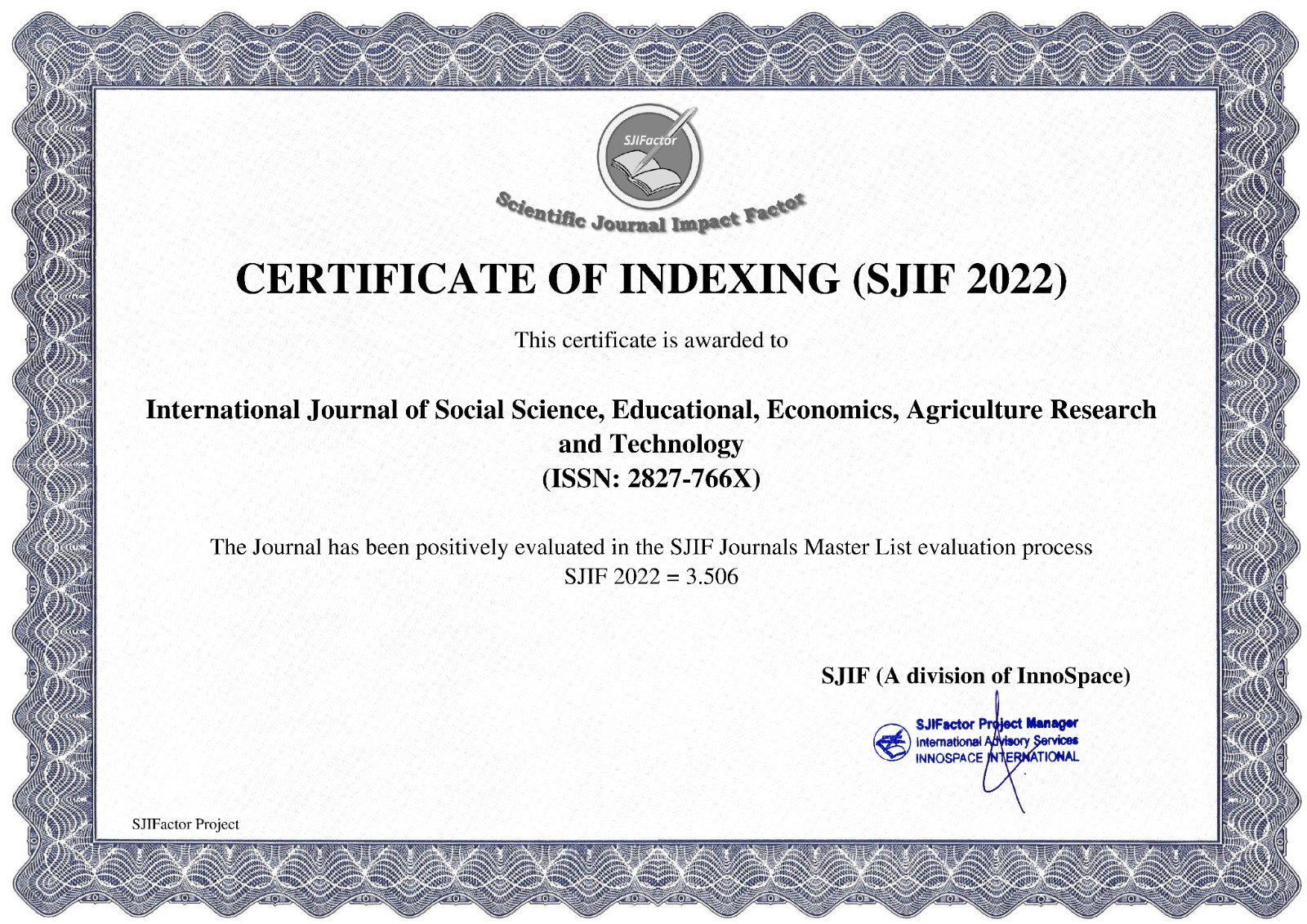SUBJECTIVE WELL-BEING DESCRIPTION OF SINGLE MOTHER WORKING IN LOVE PEACE VILLAGE HELVETIA
Main Article Content
Lumongga
Sri Milfayetty
Suryani Hardjo
Some of the things that are quite a problem for single mothers are taking care of their children alone, and at the same time they have to work to earn income to meet their daily needs. Even though being a single mother is very hard, they also have happiness as a single mother. This study aims to describe the subjective well-being of working single mothers. The research design is phenomenological. The number of respondents in this study were three people with three informants as a source of triangulation. Respondent data collection technique using purposive sampling. Research data was collected through observation and interviews. Data analysis techniques are carried out by means of data reduction, data display, and verification. The results of the study show that respondents can feel subjective well-being. For the subjective well-being aspect, the three respondents can also feel life satisfaction, because more positive affect appears. Internal factors are also very influential, so that respondents have a fairly high subjective well-being where the three respondents have a strong personality in living life, have the principle that they can definitely fight for their children, and have strong faith in God Almighty. Support from children, from family, and social support which are external factors also greatly affect the high subjective well-being of the three respondents. because more positive affect appears. Internal factors are also very influential, so that respondents have a fairly high subjective well-being where the three respondents have a strong personality in living life, have the principle that they can definitely fight for their children, and have strong faith in God Almighty. Support from children, from family, and social support which are external factors also greatly affect the high subjective well-being of the three respondents. because more positive affect appears. Internal factors are also very influential, so that respondents have a fairly high subjective well-being where the three respondents have a strong personality in living life, have the principle that they can definitely fight for their children, and have strong faith in God Almighty. Support from children, from family, and social support which are external factors also greatly affect the high subjective well-being of the three respondents. and have strong faith in God Almighty. Support from children, from family, and social support which are external factors also greatly affect the high subjective well-being of the three respondents. and have strong faith in God Almighty. Support from children, from family, and social support which are external factors also greatly affect the high subjective well-being of the three respondents.
Adriani, S. 2015. Makna Hidup pada perempuan single parent karena bercerai (Naskah Publikasi).
Aprilia, W. 2013. Resiliensi dan Dukungan Sosial pada Orang Tua Tunggal (Studi Kasus pada Ibu Tunggal di Samarinda). Psikoborneo: Jurnal Ilmiah Psikologi, Vol.1, NO.3, 157-163. Program Studi Psikologi. Universitas Mulawarman Samarinda.
Diener, E., Kesebir, P., & Tov, W. 2009. Happiness. Hand book of individual differences in social behaviour. New York, NY:Guilford.
Diener, E., Lucas, R.E., & Oishi, S. 2018. Advances and Open Question in the scince of Subjective well-being. Collabra: Psychology, Vol. 4, No. 1, 1-49. https://doi.org/10.1525/collabra.115
Hansen, T. 2011. Subjective Well-being in the second half of life: The Influence of family and household Resources. Departement of behavioural sciences in medicine Faculty of Medicine, University of Oslo. Dissertation
Kementrian Pemberdayaan dan Perlindungan Anak (2020). Profil Perempuan Indonesia 2020 Jakarta. https://www.kemenpppa.go.id/index.php/page/read/26/3057/profil-perempuanindonesia-tahun-2020.
Maddux, E. James. 2018. Subjective well being and Life Satisfaction. A Paychology Press Book. Routledge, Taylor & Francis Group New York and London.
Manik, F. 2015. Sirang so sirang (pisah tidak pisah) dalam etnis Batak Toba Kristen (Studi Kasus Pasangan suami istri di Kecamatan Bangko Pusako Kabupaten Rokan Hilir). Journal FISIP, Vol. 2, No. 2, 1-13. Sosiologi fakultas Ilmu Sosial dan Ilmu Politik.
Miranda, N., Amna, Z. 2016. Perbedaan Subjective Well-being pada dewasa Awal ditinjau dari status pernikahan di kota Banda Aceh. Jurnal Ilmiah Mahasiswa Psikologi, Vol. 1, No. 3, 34-43. Program Studi Psikologi Fakultas Kedokteran Universitas Syiah Kuala, Banda Aceh.
Nayana, F.N. 2013. Kefungsian Keluarga dan Subjective Well-Being pada Remaja. Jurnal Ilmiah Psikologi Terapan, Vol. 01. No. 02, 230-244. Fakultas Psikologi Universitas Muhammadiyah Malang.
Nisa, K., Lestari, S. 2016. Dinamika Psikologis Hardiness pada Ibu sebagai Orang Tua Tunggal karena Perceraian. The 4th University Research Coloquim fakultas Psikologi, Universitas Muhammadiyah Surakarta.
Sari, A., Taufik, Sano, A. 2016. Kondisi kehidupan rumah tangga pasangan sebelum bercerai dan faktor-faktor penyebab terjadinya perceraian (Studi pada masyarakat suku Jawa di kecamatan Sei Dadap kota Kisaran). Jurnal Konseling dan Pendidikan, Vol. 4, No. 3, 41-51. Fakultas Ilmu Pendidikan Universitas Negeri Padang.
Simatupang, N. P., Purwanti, P. A. P. 2019. Peran Faktor Sosial dan Demografi Terhadap Pendapatan Perempuan Bekerja. E-Jurnal Ekonomi Pembangunan Universitas Kristen Petra, Vol. 8, No. 8, 1884-1914. Fakultas Ekonomi dan Bisnis Universitas Udayana Bali.
Stahl, P. M. 2004. Parenting After Divorce, a guide to resolving Conflits and meeting your children’s needs. Gramedia Widiasarana Indonesia, Jakarta.
Sugiyono. (2019). Metode Penelitian Kuantitatif Kualitatif dan R&D. Alfabeta Bandung.
Utami, N. P. 2018. Kebertahanan perempuan Simalanggang menjadi single mother. Turast: Jurnal Penelitian dan Pengabdian, Vol. 6, No. 1, 25-36. Sosiologi Agama FUAD IAIN Bukit Tinggi.






















